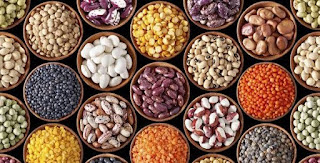Having body pain?See the natural food you need
Ben Franklin rightly said: “An ounce of prevention is worth a pound of cure.” We agree, as our orthopaedic specialists encourage patients to adopt dietary and exercise habits which support strong bones and joints.
Your everyday activities can have a big impact on the health and longevity of your joints. For instance, choosing foods that build bone density, strengthen connective tissue and decrease inflammation can help you prevent injuries and preserve your joints for a long, active life.
We usually see patients who are curious about making lifestyle changes to minimize joint pain. Yet our orthopaedic doctors recognize that it’s difficult to change everything at once. Therefore, taking a look at your diet is a good way to start.
Here are 10 healthy foods that can help reduce pain and increase mobility in the joints:
1 Omega-3 Fatty Acids / Fish Oils
Cold-water fish are an important source of Omega-3s fatty acids, which are essential nutrients for human health. These vital nutrients are also sometimes referred to as polyunsaturated fatty acids. Not only are they known to reduce inflammatory proteins in the body, but they also enhance brain function and lower risk of heart disease, diabetes and other illnesses.
Omega-3 can be found in cold-water fish like tuna, salmon, trout, halibut and sardines. Taking a daily fish oil supplement is another mean to supply your body with Omega-3s.
2. Nuts and Seeds
There is good news for the vegans and vegetarians among us. may also be found in a number of nuts and seeds. A small daily portion of walnuts, almonds, flax seeds, chia seeds or pine nuts can be helpful in reducing inflammation in the joints and connective tissue.
3. Brassica Vegetables
What are they?You may ask. Also known as cruciferous vegetables, brassicas are commonly linked to the mustard and cabbage family. Leafy greens such as mustard greens, arugula, kale and purple cabbage are all in the brassica family. Several other popular and tasty vegetables make the list, including broccoli, cauliflower and Brussel sprouts.
This particular subset of the vegetable population has been known to eliminate an enzyme that causes swelling in the joints. In addition,they’re chocked full of fiber, vitamins and nutrients for overall health and well-being.
4.Colorful Fruits
Fruits sometimes get a bad rap because of their high sugar level, but many are excellent antioxidants. Just like with vegetables, some fruits are more effective than others in limiting inflammation in the body.
We’re particularly in favour of blueberries, because they are high in anthocyanins – one of the most powerful flavonoids. These can help “turn off” inflammatory responses in the body.
Apples are another fiber-rich, anti-inflammatory fruits, and they supply added benefits for gut health.
Pineapple is also on our short list for its bromelain content, a nutrient which is able to reduce joint pain caused by osteoarthritis and rheumatoid arthritis. However, a great number of the bromelain is found in the stem and core of the pineapple, so blend the core into a smoothie to to obtain the maximum benefit.
And finally, tomatoes contain the powerful antioxidant, lycopene. Cooked tomatoes are even more lycopene-rich than uncooked ones. Ensure to consume the skin to get the maximum benefit
5 . Olive Oil
6. Lentils and Beans
7. Garlic and Root Vegetables
8. Whole Grains
Research suggests that proteins found in refined grains,like white bread, white rice and regular pasta,can trigger an inflammatory response in the body. However, high-fiber whole grains help produce fatty acids which are thought to counteract inflammation. Therefore, stick with the whole grains.
The Arthritis Foundation provides a detailed list of grains which are recommended for arthritis suffers – such as whole wheat, whole oats, barley and rye.
9. Bone Broth
Glucosamine, chondroitin and amino acids are well known to help maintain healthy joints, while calcium is important for bone density. Bone broth contains all of these. The gelatin-like substance that comes from cooking bones mimics collagen that occurs naturally in our joints, tendons and ligaments. Whether or not bone broth can actually activate regrowth of cartilage is a fiercely debated topic in the medical filed. But taken regularly as an oral supplement, it has been known to decrease joint pain and increase function for people with arthritis.
Bone broth can be eaten as a hot broth or used in recipes as a cooking base or sauce.
10. Dark Chocolate
Dark Chocolate,indeed, has anti-inflammatory properties. Cocoa, the main ingredient in chocolate, contains antioxidants that may counteract genetic predisposition to insulin resistance and inflammation. The higher the percentage of cocoa in the chocolate, the higher its anti-inflammatory action.
But remember, chocolate may be high in sugar and fat, so enjoy it in moderation. If you’re going to indulge, choose chocolate containg at least 70% of cocoa.Here are some DON’Ts when it comes to eating for joint health. Pay careful attention to the effects of foods that can be linked to inflammation:
- Limit refined grains such as pasta, rice and white bread.
- Keep salt to a minimum. Salt causes fluid retention, which is link to tissue swelling. Additionally, the Arthritis Foundation reports that limiting salt consumption can reduce calcium loss, thereby reducing osteoporosis and fracture risk.
- Avoid processed foods whenever possible.
Stay tuned to our blog for more prevention tips and information.
















Comments
Post a Comment